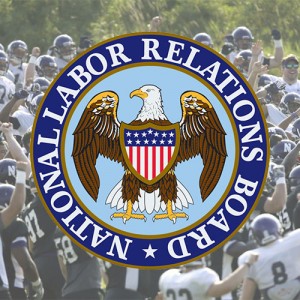
This week the National Labor Relations Board (“NLRB”) declined to determine whether Northwestern University football players could form a union, bringing an end to more than 16 months of expectations of an affirmative decision that could change the landscape of college athletics. This decision came after a regional NLRB director ruled that the Northwestern football players were indeed university employees.
In March 2014, the NLRB’s regional director in Chicago found that the Northwestern football players were university employees under the federal law and could therefore unionize. The NLRB defines an employee as someone who is under the contract of hire to perform services for another, is subject to the employer’s control, and in return receives payment. Northwestern football players met this standard by showing that they were paid by means of scholarships, their time commitment to playing football was equivalent to that of an average employee, and in turn they generated millions of dollars for Northwestern University. The football players were also able to provide evidence of the university’s control over the players. As such, the NLRB initially recognized the football players’ right to unionize. Northwestern University and the NCAA disagreed.
Now, after the NLRB granted Northwestern University’s request for review of the regional director’s decision in April 2014, the five-member panel of NLRB in Washington, D.C. unanimously decided to decline jurisdiction, reasoning that asserting jurisdiction over a single team “would not promote labor stability due to the nature and structure of NCAA Division I Football Subdivisions (FBS).” In addition, NLRB recognized that it does not have jurisdiction over state colleges, which account for the majority of NCAA football teams.
This decision is, however, specific to the football players at Northwestern University, meaning that the NLRB could potentially, and likely will, consider this issue again in the future. Recognizing student-athletes’ right to unionize could significantly change the landscape of college athletics, threatening the NCAA’s controversial collegiate sports model, already weakened by the outcome of the O’Bannon case. This is not the last we’ve heard from the student-athletes on this point, and the projections of many scholars that we are entering the new era of college sports may well come true, notwithstanding this week’s decision.
